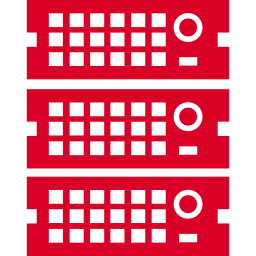
Demand Shift: Are DNS Functions Losing Their Vitality?
Domain Name System is very useful for surfers to gain access to your website. It is the tool that helps to convert your website’s URL into an IP address that allows smooth communication and sharing of information. Internet resources, services, computers and private network make use of DNS where names are arranged in a hierarchical decentralized pattern. Troubleshooting for DNS problem is very common. Some common examples of these problems are when your version of Windows OS loses the DNS thus making access to websites impossible, or when the update of the DNS does not function properly.
Some experts are using a local router to run their DNS for hostnames in their LAN. Thus, to validate, execute cache and recursive functions for DNS resolver the Unbound tool is very useful. Such DNS resolver is useful in determining the domain server that is responsible for a particular website’s name.
The process of resolving is executed through the aid of different queries beginning from the foremost label for a domain. The demand for DNS maybe shifting as new technology and advancement in hardware and software development continues. However, DNS usefulness is still invaluable.
How Useful Is DNS In The Contemporary Cyber World?
Real Life Example – PieForFamily.com
 PieForFamily project has been originally hosted on DNS given by the hosting company it is using. The user experience in the United States might have been proper, but rest of the world suffered with lots of waiting to see the video content. The solution? To use Cloudflare. Their servers are basically all over the world giving the perfect connectivity to the website. DNS setup these days can be tricky, but thanks to Cloudflare it’s super easy to basically fix all of the issues with single click.
PieForFamily project has been originally hosted on DNS given by the hosting company it is using. The user experience in the United States might have been proper, but rest of the world suffered with lots of waiting to see the video content. The solution? To use Cloudflare. Their servers are basically all over the world giving the perfect connectivity to the website. DNS setup these days can be tricky, but thanks to Cloudflare it’s super easy to basically fix all of the issues with single click.

How Useful Is DNS In The Contemporary Cyber World?
DNS is still very much useful in today’s cyber world and internet operations. Despite the observed numbers of problems with DNS, it is a useful system for naming and arrangement for internet resources and the creation of orderly domain names to avoid confusion.
Like a phone book, the domain name system is germane for computers and machines to operate smoothly while accessing websites and other resources. A human being can remember a domain name easily, but computers can only remember and read IP addresses for websites, not their names.
So, the DNS is very useful in ensuring that the collated domain names are presented as IP addresses for computers to decipher easily.
Pattern DNS Presents Its Information To Computers

Pattern DNS Presents Its Information To Computers
As aforementioned, the computers read differently from the way we human reads domains names and remember them by these names. The DNS helps in gathering all domain names from different servers available on the internet. These domain names are then housed in a central registry.
The registries are consistently updated by domain host companies and operators of internet services. The domain names are stored as IP addresses, for example, 261.164.220.67 IP address represents a domain name. Hence, when internet users type a domain name to access a website, the internet provider converts this name to a machine-friendly IP address for the surfer to get the right address. With this function, it is seen that the DNS is still very necessary in the modern internet world.
Usually, new domain names are registered between 12 to 36 hours in the DNS server. The use of protocol and records are very significant to the successful operation of the DNS system.
Some utilities to aid proper functioning of the DNS are available on the internet. PowerDNS open source products are an example of these utilities. This platform has user-friendly integrated open source products for an excellent performance of the DNS.
